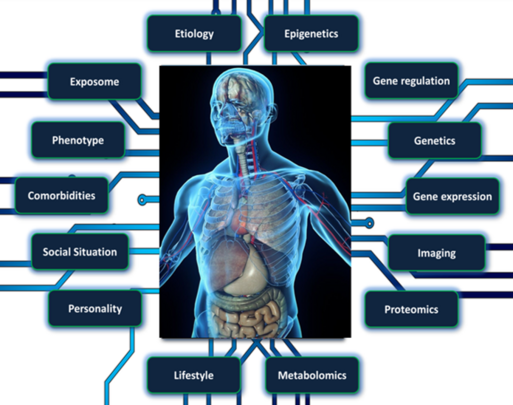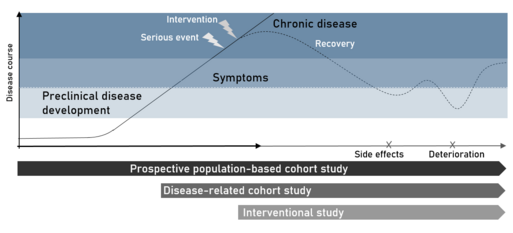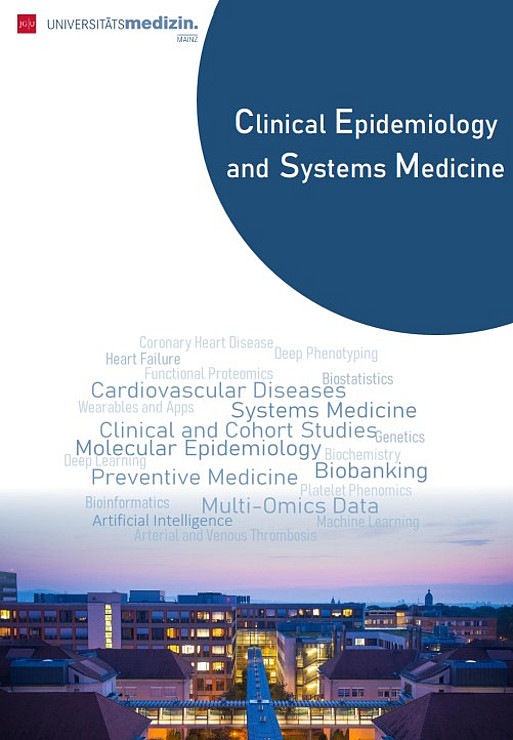Holistic Approach to Understanding Disease
Clinical Epidemiology and Systems Medicine focuses on patient-oriented translational cardiovascular research. The focus is on conducting prospective cohort studies and clinical trials to improve the prevention, diagnosis, treatment and prognosis of common diseases, especially cardiovascular diseases. To achieve this, we take a holistic approach that considers all levels that influence disease - from genetics to lifestyle, social situation and other environmental influences.

Our Goals
Detailed Monitoring of Disease Development, Expression and Progression
In studies in a clinical context, participants are usually enrolled at the time of presentation with symptoms at the hospital. Apart from potential selection bias, this means that it is not possible to observe individuals during the pre-disease period when subclinical disease is just developing. Population-based cohort studies circumvent this by randomly selecting participants regardless of their indication. However, clinical trials are ideal for diseases with an important component during the acute phase. The combination of population-based and clinical studies allows for the investigation of diseases at all stages, which is why Clinical Epidemiology and Systems Medicine conducts both types of studies.


